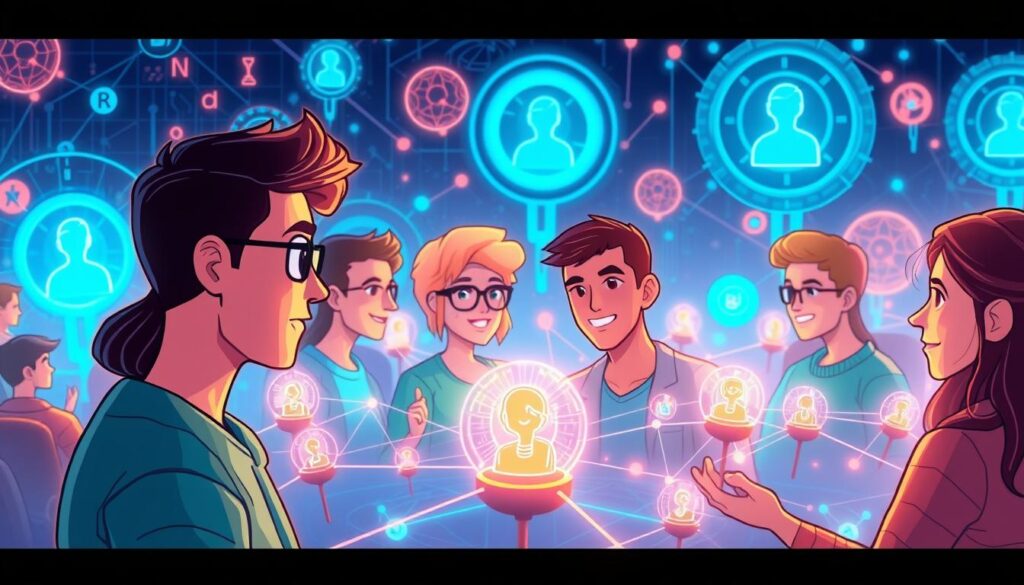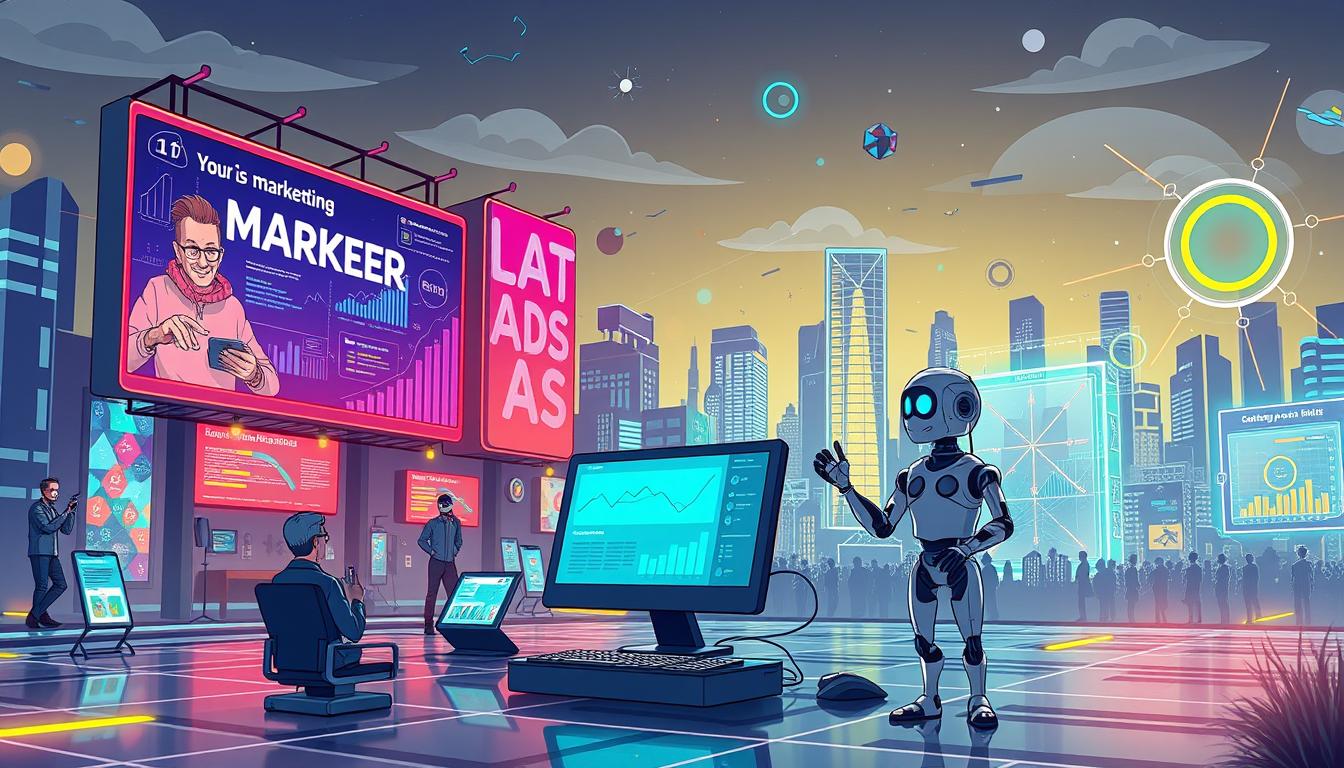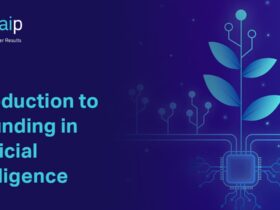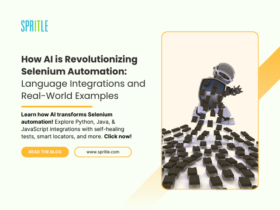We are in a new era of digital ads, with AI leading the way. AI is changing how we market, what we measure, and how we connect with customers. By 2024, AI is key to digital ads, making ads more targeted, prices dynamic, and content better.
AI’s effect on marketing is huge, making campaigns better and reaching the right people. Tools powered by AI save marketers a lot of time, doing tasks like reporting and ad checks.
AI and GenAI are making ads more personal and engaging, with most marketers focusing on AI. AI is changing marketing in many ways, like making content, personalizing ads, predicting trends, and making marketing more efficient.
Current Landscape of AI in Marketing
The marketing world is changing fast, thanks to predictive analytics and machine learning. Predictive analytics helps advertisers guess what people will want next. This lets them make ads that really speak to their audience.
AI looks at lots of data to find patterns in how people act. This helps make ads that feel just right for each person. It makes people feel more connected to the brands they love.
AI-Powered Analytics Platforms
Tools like Google Analytics and Adobe Analytics give marketers deep insights. They show how ads are doing and what people like. This helps marketers make better choices and get better results.
Machine Learning Applications
Machine learning in marketing has changed a lot. It makes ads appear in the right places, based on who’s looking and what they’re doing. It also makes voice and visual search better, helping brands connect with people in new ways.
| Platform | User Base | Unique Features |
|---|---|---|
| Flick | Over 100,000 | Caters to high-profile Instagram accounts with substantial followers |
| Anyword | Over 1 million | Boasts a growing user base, indicating trust in AI-driven marketing solutions |
| Optimove | N/A | Ranked highly by Gartner in Multichannel Marketing Journey Orchestration |
| Scalenut | Over 1 million | Serves over 1 million marketers worldwide |
| Seventh Sense | Hundreds of customers | Offers innovative email marketing optimization |
| Rapidely.app | N/A | Pricing plans start at $24 per month, with scaling options up to Agency level |
| Phrasee | N/A | Provides tailored pricing based on specific business needs |
AI in Marketing: Transforming Customer Engagement
The marketing world has changed a lot thanks to AI. AI-driven personalization, chatbots, and customer data platforms have changed how businesses talk to customers.
Chatbots and virtual assistants use natural language processing to help customers. They talk to users in real-time, giving them personalized advice and helping them buy things. This makes customers happier and helps businesses sell more.
Customer data platforms and insights are key for personalizing customer interactions. AI looks at lots of data to understand what customers want. Almost half of marketing leaders say getting customer data is important for better engagement.
AI is changing how businesses connect with customers. Generative AI gives personalized product and service suggestions, making customers more engaged and loyal. AI also checks what people say about brands on social media, helping businesses improve their messages.

AI in marketing is getting more popular, and the future looks exciting. From voice recognition to virtual reality, the possibilities are huge. As businesses use more AI, they’ll see big changes in how they connect with customers, leading to more loyalty and sales.
Conclusion
Artificial intelligence (AI) is changing marketing fast. New AI tools like natural language processing and sentiment analysis will lead to smarter ads. These tools could change how we talk to brands and set new standards for ads.
But, using AI in marketing comes with big challenges. There are worries about ethics and keeping customer data safe. Marketers need to follow rules and keep trust with their audience.
It’s key for marketers to keep up with new tech and ethics. Using AI in marketing well means adapting to digital changes. The best marketing mixes human creativity with AI’s power.
The future of marketing looks bright, with more personal and efficient ads. But, there are big questions about AI’s ethics, like bias and privacy. Marketers must be ready to handle these issues and keep up with rules.
By understanding and using AI wisely, marketers can do great things. They’ll be ready for the future of marketing.










